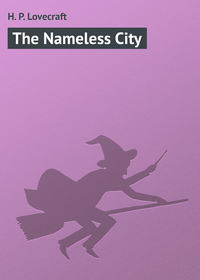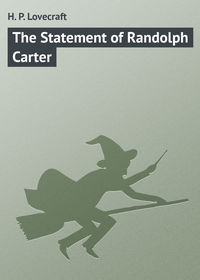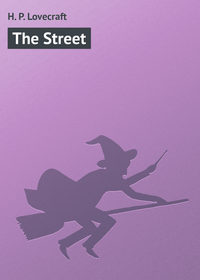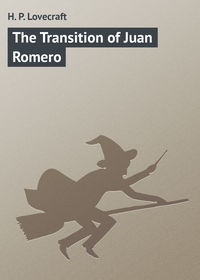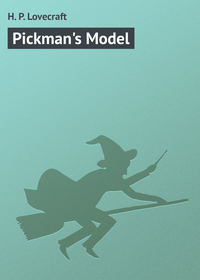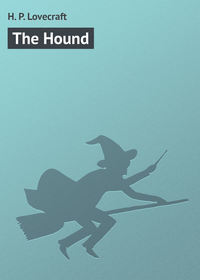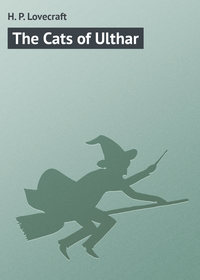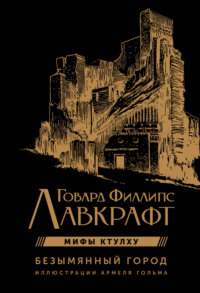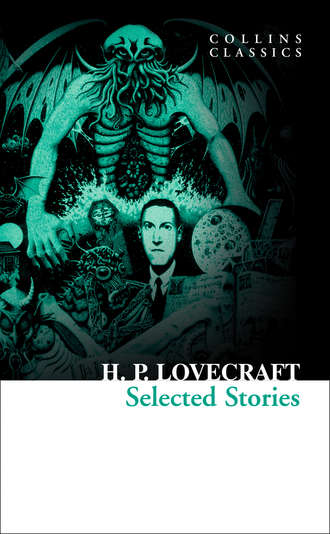
Полная версия
Selected Stories
For that visitor was neither Italian nor policeman. Looming hideously against the spectral moon was a gigantic misshapen thing not to be imagined save in nightmares – a glassy-eyed, ink-black apparition nearly on all fours, covered with bits of mould, leaves, and vines, foul with caked blood, and having between its glistening teeth a snow-white, terrible, cylindrical object terminating in a tiny hand.
IV. THE SCREAM OF THE DEAD
The scream of a dead man gave to me that acute and added horror of Dr Herbert West which harassed the latter years of our companionship. It is natural that such a thing as a dead man’s scream should give horror, for it is obviously not a pleasing or ordinary occurrence; but I was used to similar experiences, hence suffered on this occasion only because of a particular circumstance. And, as I have implied, it was not of the dead man himself that I became afraid.
Herbert West, whose associate and assistant I was, possessed scientific interests far beyond the usual routine of a village physician. That was why, when establishing his practice in Bolton, he had chosen an isolated house near the potter’s field. Briefly and brutally stated, West’s sole absorbing interest was a secret study of the phenomena of life and its cessation, leading towards the reanimation of the dead through injections of an excitant solution. For this ghastly experimenting it was necessary to have a constant supply of very fresh human bodies; very fresh because even the least decay hopelessly damaged the brain structure, and human because we found that the solution had to be compounded differently for different types of organisms. Scores of rabbits and guinea-pigs had been killed and treated, but their trail was a blind one. West had never fully succeeded because he had never been able to secure a corpse sufficiently fresh. What he wanted were bodies from which vitality had only just departed; bodies with every cell intact and capable of receiving again the impulse towards that mode of motion called life. There was hope that this second and artificial life might be made perpetual by repetitions of the injection, but we had learned that an ordinary natural life would not respond to the action. To establish the artificial motion, nocturnal life must be extinct – the specimens must be very fresh, but genuinely dead.
The awesome quest had begun when West and I were students at the Miskatonic University medical school in Arkham, vividly conscious for the first time of the thoroughly mechanical nature of life. That was seven years before, but West looked scarcely a day older now – he was small, blond, clean-shaven, soft-voiced, and spectacled, with only an occasional flash of a cold blue eye to tell of the hardening and growing fanaticism of his character under the pressure of his terrible investigations. Our experiences had often been hideous in the extreme; the results of defective reanimation, when lumps of graveyard clay had been galvanized into morbid, unnatural, and brainless motion by various modifications of the vital solution.
One thing had uttered a nerve-shattering scream; another had risen violently, beaten us both to unconsciousness, and run amuck in a shocking way before it could be placed behind asylum bars; still another, a loathsome African monstrosity, had clawed out of its shallow grave and done a deed – West had had to shoot that object. We could not get bodies fresh enough to show any trace of reason when reanimated, so had perforce created nameless horrors. It was disturbing to think that one, perhaps two, of our monsters still lived—that thought haunted us shadowingly, till finally West disappeared under frightful circumstances. But at the time of the scream in the cellar laboratory of the isolated Bolton cottage, our fears were subordinate to our anxiety for extremely fresh specimens. West was more avid than I, so that it almost seemed to me that he looked half-covetously at any very healthy living physique.
It was in July, 1910, that the bad luck regarding specimens began to turn. I had been on a long visit to my parents in Illinois, and upon my return found West in a state of singular elation. He had, he told me excitedly, in all likelihood solved the problem of freshness through an approach from an entirely new angle – that of artificial preservation. I had known that he was working on a new and highly unusual embalming compound, and was not surprised that it had turned out well; but until he explained the details I was rather puzzled as to how such a compound could help in our work, since the objectionable staleness of the specimens was largely due to delay occurring before we secured them. This, I now saw, West had clearly recognized; creating his embalming compound for future rather than immediate use, and trusting to fate to supply again some very recent and unburied corpse, as it had years before when we obtained the Negro killed in the Bolton prize-fight. At last fate had been kind, so that on this occasion there lay in the secret cellar laboratory a corpse whose decay could not by any possibility have begun. What would happen on reanimation, and whether we could hope for a revival of mind and reason West did not venture to predict. The experiment would be a landmark in our studies, and he had saved the new body for my return, so that both might share the spectacle in accustomed fashion.
West told me how he had obtained the specimen. It had been a vigorous man; a well-dressed stranger just off the train on his way to transact some business with the Bolton Worsted Mills. The walk through the town had been long, and by the time the traveller paused at our cottage to ask the way to the factories his heart had become greatly overtaxed. He had refused a stimulant, and had suddenly dropped dead only a moment later. The body, as might be expected, seemed to West a heaven-sent gift. In his brief conversation the stranger had made it clear that he was unknown in Bolton, and a search of his pockets subsequently revealed him to be one Robert Leavitt of St Louis, apparently without a family to make inquiries about his disappearance. If this man could not be restored to life, no one would know of our experiment. We buried our materials in a dense strip of woods between the house and the potter’s field. If, on the other hand, he could be restored, our fame would be brilliantly and perpetually established. So without delay West had injected into the body’s wrist the compound which would hold it fresh for use after my arrival. The matter of the presumably weak heart, which to my mind imperilled the success of our experiment, did not appear to trouble West extensively. He hoped at last to obtain what he had never obtained before – a rekindled spark of reason and perhaps a normal, living creature.
So on the night of July 18, 1910, Herbert West and I stood in the cellar laboratory and gazed at a white, silent figure beneath the dazzling arc-light. The embalming compound had worked uncannily well, for as I stared fascinatedly at the sturdy frame which had lain two weeks without stiffening I was moved to seek West’s assurance that the thing was really dead. This assurance he gave readily enough; reminding me that the reanimating solution was never used without careful tests as to life; since it could have no effect if any of the original vitality were present. As West proceeded to take preliminary steps, I was impressed by the vast intricacy of the new experiment; an intricacy so vast that he could trust no hand less delicate than his own. Forbidding me to touch the body, he first injected a drug in the wrist just beside the place his needle had punctured when injecting the embalming compound. This, he said, was to neutralize the compound and release the system to a normal relaxation so that the reanimating solution might freely work when injected. Slightly later, when a change and a gentle tremor seemed to affect the dead limbs, West stuffed a pillow-like object violently over the twitching face, not withdrawing it until the corpse appeared quiet and ready for our attempt at reanimation. The pale enthusiast now applied some last perfunctory tests for absolute lifelessness, withdrew satisfied, and finally injected into the left arm an accurately measured amount of the vital elixir; prepared during the afternoon with a greater care than we had used since college days, when our feats were new and groping. I cannot express the wild, breathless suspense with which we waited for results on this first really fresh specimen – the first we could reasonably expect to open its lips in rational speech, perhaps to tell of what it had seen beyond the unfathomable abyss.
West was a materialist, believing in no soul and attributing all the working of consciousness to bodily phenomena; consequently he looked for no revelation of hideous secrets from gulfs and caverns beyond death’s barrier. I did not wholly disagree with him theoretically, yet held vague instinctive remnants of the primitive faith of my forefathers; so that I could not help eyeing the corpse with a certain amount of awe and terrible expectation. Besides – I could not extract from my memory that hideous, inhuman shriek we heard on the night we tried our first experiment in the deserted farmhouse at Arkham.
Very little time had elapsed before I saw the attempt was not to be a total failure. A touch of colour came to cheeks hitherto chalk-white, and spread out under the curiously ample stubble of sandy beard. West, who had his hand on the pulse of the left wrist, suddenly nodded significantly; and almost simultaneously a mist appeared on the mirror inclined above the body’s mouth. There followed a few spasmodic muscular motions, and then an audible breathing, and visible motion of the chest. I looked at the closed eyelids, and thought I detected a quivering. Then the lids opened, showing eyes which were grey, calm, and alive, but still unintelligent and not even curious.
In a moment of fantastic whim I whispered questions to the reddening ears; questions of other worlds of which the memory might still be present. Subsequent terror drove them from my mind, but I think the last one, which I repeated was: ‘Where have you been?’ I do not yet know whether I was answered or not, for no sound came from the well-shaped mouth; but I do know that at that moment I firmly thought the thin lips moved silently, forming syllables which I would have vocalized as ‘only now’ if that phrase had possessed any sense or relevancy. At that moment, as I say, I was elated with the conviction that the one great goal had been attained; and that for the first time a reanimated corpse had uttered distinct words impelled by actual reason. In the next moment there was no doubt about the triumph; no doubt that the solution had truly accomplished, at least temporarily, its full mission of restoring rational and articulate life to the dead. But in that triumph there came to me the greatest of all horrors – not horror of the thing that spoke, but of the deed that I had witnessed and of the man with whom my professional fortunes were joined.
For that very fresh body, at last writhing into full and terrifying consciousness with eyes dilated at the memory of its last scene on earth, threw out its frantic hands in a life and death struggle with the air; and suddenly collapsing into a second and final dissolution from which there could be no return, screamed out the cry that will ring eternally in my aching brain:
‘Help! Keep off, you cursed little tow-head fiend – keep that damned needle away from me!’
V. THE HORROR FROM THE SHADOWS
Many men have related hideous things, not mentioned in print, which happened on the battlefields of the Great War. Some of these things have made me faint, others have convulsed me with devastating nausea, while still others have made me tremble and look behind me in the dark; yet despite the worst of them I believe I can relate the most hideous thing of all – the shocking, the unnatural, the unbelievable horror from the shadows.
In 1915 I was a physician with the rank of First Lieutenant in a Canadian regiment in Flanders, one of many Americans to precede the government itself into the gigantic struggle. I had not entered the army on my initiative, but rather as a natural result of the enlistment of the man whose indispensable assistant I was – the celebrated Boston surgical specialist, Dr Herbert West. Dr West had been avid for a chance to serve as surgeon in a great war, and when the chance had come he carried me with him almost against my will. There were reasons why I would have been glad to let the war separate us; reasons why I found the practice of medicine and the companionship of West more and more irritating; but when he had gone to Ottawa and through a colleague’s influence secured a medical commission as Major, I could not resist the imperious persuasion of one determined that I should accompany him in my usual capacity.
When I say that Dr West was avid to serve in battle, I do not mean to imply that he was either naturally warlike or anxious for the safety of civilization. Always an ice-cold intellectual machine: slight, blond, blue-eyed, and spectacled: I think he secretly sneered at my occasional martial enthusiams and censures of supine neutrality. There was, however, something he wanted in embattled Flanders; and in order to secure it he had to assume a military exterior. What he wanted was not a thing which many persons want, but something connected with the peculiar branch of medical science which he had chosen quite clandestinely to follow, and in which he had achieved amazing and occasionally hideous results. It was, in fact, nothing more or less than an abundant supply of freshly killed men in every stage of dismemberment.
Herbert West needed fresh bodies because his life-work was the reanimation of the dead. This work was not known to the fashionable clientele who had so swiftly built up his fame after his arrival in Boston; but was only too well known to me, who had been his closest friend and sole assistant since the old days in Miskatonic University medical school at Arkham. It was in those college days that he had begun his terrible experiments, first on small animals and then on human bodies shockingly obtained. There was a solution which he injected into the veins of dead things, and if they were fresh enough they responded in strange ways. He had had much trouble in discovering the proper formula, for each type of organism was found to need a stimulus especially adapted to it. Terror stalked him when he reflected on his partial failures; nameless things resulting from imperfect solutions or from bodies insufficiently fresh. A certain number of these failures had remained alive – one was in an asylum while others had vanished – and as he thought of conceivable yet virtually impossible eventualities he often shivered beneath his usual stolidity.
West had soon learned that absolute freshness was the prime requisite for useful specimens, and had accordingly resorted to frightful and unnatural expedients in body-snatching. In college, and during our early practice together in the factory town of Bolton, my attitude towards him had been largely one of fascinated admiration; but as his boldness in methods grew, I began to develop a gnawing fear. I did not like the way he looked at healthy living bodies; and then there came a nightmarish session in the cellar laboratory when I learned that a certain specimen had been a living body when he secured it. That was the first time he had ever been able to revive the quality of rational thought in a corpse; and his success, obtained at such a loathsome cost, had completely hardened him.
Of his methods in the intervening five years I dare not speak. I was held to him by sheer force of fear, and witnessed sights that no human tongue could repeat. Gradually I came to find Herbert West himself more horrible than anything he did – that was when it dawned on me that his once normal scientific zeal for prolonging life had subtly degenerated into a mere morbid and ghoulish curiosity and secret sense of charnel picturesqueness. His interest became a hellish and perverse addiction to the repellently and fiendishly abnormal; he gloated calmly over artificial monstrosities which would make most healthy men drop dead from fright and disgust; he became, behind his pallid intellectuality, a fastidious Baudelaire of physical experiment – a languid Elagabalus of the tombs.
Dangers he met unflinchingly; crimes he committed unmoved. I think the climax came when he had proved his point that rational life can be restored, and had sought new worlds to conquer by experimenting on the reanimation of detached parts of bodies. He had wild and original ideas on the independent vital properties of organic cells and nerve tissues separated from natural physiological systems; and achieved some hideous preliminary results in the form of never-dying, artificially nourished tissue obtained from the nearly-hatched eggs of an indescribable tropical reptile. Two biological points he was exceedingly anxious to settle – first, whether any amount of consciousness and rational action might be possible without the brain, proceeding from the spinal cord and various nerve-centres; and second, whether any kind of ethereal, intangible relation distinct from the material cells may exist to link the surgically separated parts of what has previously been a single living organism. All this research work required a prodigious supply of freshly slaughtered human flesh – and that was why Herbert West had entered the Great War.
The phantasmal, unmentionable thing occurred one midnight late in March, 1915, in a field hospital behind the lines at St Eloi. I wonder even now if it could have been other than a demoniac dream of delirium. West had a private laboratory in an east room of the barn-like temporary edifice, assigned him on his plea that he was devising new and radical methods for the treatment of hitherto hopeless cases of maiming. There he worked like a butcher in the midst of his gory wares – I could never get used to the levity with which he handled and classified certain things. At times he actually did perform marvels of surgery for the soldiers; but his chief delights were of a less public and philanthropic kind, requiring many explanations of sounds which seemed peculiar even amidst that babel of the damned. Among these sounds were frequent revolver-shots – surely not uncommon on a battlefield, but distinctly uncommon in a hospital. Dr West’s reanimated specimens were not meant for long existence or a large audience. Besides human tissue, West employed much of the reptile embryo tissue which he had cultivated with such singular results. It was better than human material for maintaining life in organless fragments, and that was now my friend’s chief activity. In a dark corner of the laboratory, over a queer incubating burner, he kept a large covered vat full of this reptilian cell-matter; which multiplied and grew puffily and hideously.
On the night of which I speak we had a splendid new specimen – a man at once physically powerful and of such high mentality that a sensitive nervous system was assured. It was rather ironic, for he was the officer who had helped West to his commission, and who was now to have been our associate. Moreover, he had in the past secretly studied the theory of reanimation to some extent under West. Major Sir Eric Moreland Clapham-Lee, D.S.O., was the greatest surgeon in our division, and had been hastily assigned to the St Eloi sector when news of the heavy fighting reached headquarters. He had come in an aeroplane piloted by the intrepid Lieutenant Ronald Hill, only to be shot down when directly over his destination. The fall had been spectacular and awful; Hill was unrecognizable afterwards, but the wreck yielded up the great surgeon in a nearly decapitated but otherwise intact condition. West had greedily seized the lifeless thing which had once been his friend and fellow-scholar; and I shuddered when he finished severing the head, placed it in his hellish vat of pulpy reptile-tissue to preserve it for future experiments, and proceeded to treat the decapitated body on the operating table. He injected new blood, joined certain veins, arteries, and nerves at the headless neck, and closed the ghastly aperture with engrafted skin from an unidentified specimen which had borne an officer’s uniform. I knew what he wanted – to see if this highly organized body could exhibit, without its head, any of the signs of mental life which had distinguished Sir Eric Moreland Clapham-Lee. Once a student of reanimation, this silent trunk was now gruesomely called upon to exemplify it.
I can still see Herbert West under the sinister electric light as he injected his reanimating solution into the arm of the headless body. The scene I cannot describe – I should faint if I tried it, for there is madness in a room full of classified charnel things, with blood and lesser human debris almost ankle-deep on the slimy floor, and with hideous reptilian abnormalities sprouting, bubbling, and baking over a winking bluish-green spectre of dim flame in a far corner of black shadows.
The specimen, as West, repeatedly observed, had a splendid nervous system. Much was expected of it; and as a few twitching motions began to appear, I could see the feverish interest on West’s face. He was ready, I think, to see proof of his increasingly strong opinion that consciousness, reason, and personality can exist independently of the brain – that man has no central connective spirit, but is merely a machine of nervous matter, each section more or less complete in itself. In one triumphant demonstration West was about to relegate the mystery of life to the category of myth. The body now twitched more vigorously, and beneath our avid eyes commenced to heave in a frightful way. The arms stirred disquietingly, the legs drew up, and various muscles contracted in a repulsive kind of writhing. Then the headless thing threw out its arms in a gesture which was unmistakably one of desperation – an intelligent desperation apparently sufficient to prove every theory of Herbert West. Certainly, the nerves were recalling the man’s last act in life; the struggle to get free of the falling aeroplane.
What followed, I shall never positively know. It may have been wholly an hallucination from the shock caused at that instant by the sudden and complete destruction of the building in a cataclysm of German shell-fire – who can gainsay it, since West and I were the only proved survivors? West liked to think that before his recent disappearance, but there were times when he could not; for it was queer that we both had the same hallucination. The hideous occurrence itself was very simple, notable only for what it implied.
The body on the table had risen with a blind and terrible groping, and we had heard a sound. I should not call that sound a voice, for it was too awful. And yet its timbre was not the most awful thing about it. Neither was its message – it had merely screamed, ‘Jump, Ronald, for God’s sake, jump!’ The awful thing was its source.
For it had come from the large covered vat in that ghoulish corner of crawling black shadows.
VI. THE TOMB-LEGIONS
When Dr Herbert West disappeared a year ago, the Boston police questioned me closely. They suspected that I was holding something back, and perhaps suspected even graver things; but I could not tell them the truth because they would not have believed it. They knew, indeed, that West had been connected with activities beyond the credence of ordinary men; for his hideous experiments in the reanimation of dead bodies had long been too extensive to admit of perfect secrecy; but the final soul-shattering catastrophe held elements of demoniac phantasy which make even me doubt the reality in what I saw.
I was West’s closest friend and only confidential assistant. We had met years before, in medical school, and from the first I had shared his terrible researches. He had slowly tried to perfect a solution which, injected into the veins of the newly deceased, would restore life; a labour demanding an abundance of fresh corpses and therefore involving the most unnatural actions. Still more shocking were the products of some of the experiments – grisly masses of flesh that had been dead, but that West waked to a blind, brainless, nauseous animation. These were the usual results, for in order to reawaken the mind it was necessary to have specimens so absolutely fresh that no decay could possibly affect the delicate brain cells.


